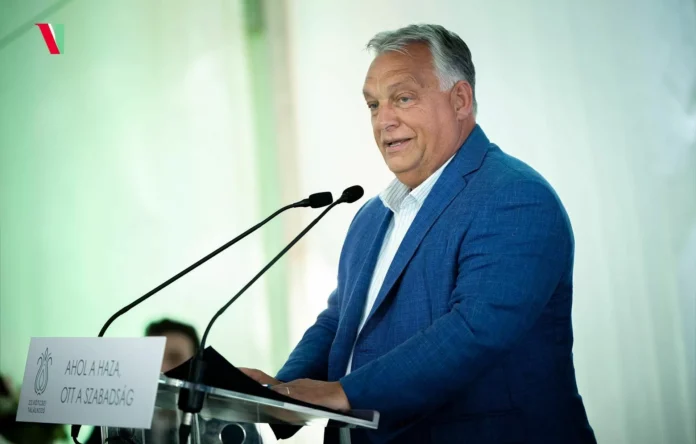Hungarian Prime Minister Viktor Orban has praised the pro-Russian party «Georgian Dream», stating that the political force has prevented their country from becoming a «second Ukraine». This statement comes as a surprise to many, as Orban has been known for his strong anti-immigration and anti-EU stance, often aligning himself with Russian President Vladimir Putin.
Orban’s comments were made during a recent visit to Georgia, where he met with members of the ruling party and expressed his admiration for their policies. He stated that the Georgian Dream party has successfully resisted pressure from the West to turn their country into a «second Ukraine», referring to the ongoing conflict between Ukraine and Russia.
The Hungarian Prime Minister also praised the Georgian Dream party for their strong economic policies, which have led to significant growth and development in the country. He noted that Georgia has become a model for other post-Soviet countries, and that the Georgian Dream party has played a crucial role in this success.
Orban’s comments have been met with mixed reactions, with some praising his support for the Georgian Dream party and their pro-Russian stance. Others, however, have criticized his statements, stating that they go against the values of the European Union and could potentially harm relations with other EU member states.
The Georgian Dream party, led by billionaire Bidzina Ivanishvili, has been in power since 2012 and has maintained a close relationship with Russia. This has often been a source of tension with the West, particularly with the United States, who have been strong supporters of Georgia’s pro-Western policies.
Orban’s praise for the Georgian Dream party has also raised concerns about Hungary’s own relationship with the EU and its alignment with Russia. The Hungarian Prime Minister has been a vocal critic of the EU’s immigration policies and has been accused of undermining democratic institutions in his own country.
Despite these concerns, Orban’s visit to Georgia and his praise for the Georgian Dream party have been seen as a positive step towards strengthening ties between the two countries. It also highlights the growing influence of Russia in the region, as more countries look towards Moscow for economic and political support.
In conclusion, Orban’s comments about the Georgian Dream party have sparked both praise and criticism, but they also shed light on the complex dynamics between Eastern European countries and their relationships with the EU and Russia. Only time will tell how these relationships will continue to evolve, but for now, the Georgian Dream party can count on the support of the Hungarian Prime Minister.

